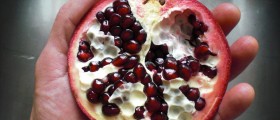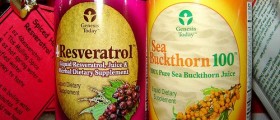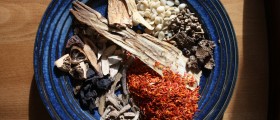
Definition of pycnogenol
Pycnogenol is the brand name for a mixture of about forty different antioxidants that are extracted from the bark of a type of the French pine. Scientists have found that pycnogenol extends effects and saves supplies of vitamin C, returning it in the form of antioxidant after oxidation. In addition, it was determined that pycnogenol also increases production of other antioxidants such as vitamin E and glutathione, and thus actively participate in defending the body against free radicals.Health benefits of pycnogenol
Pycnogenol is very important for the walls of capillaries, which have to be strong, but flexible enough that blood may freely flow through them. Weak capillaries cause the occurrence of bruising and edema.Prevention of heart disease is reflected in its ability to prevent platelet aggregation, which can lead to heart attack and stroke.
Pycnogenol can prevent cells dying, particularly brain cells and its effect is associated with slowing down the aging process.
The most important feature is its strong antioxidant potential, which actually protects the plants and their fruits from intense solar radiation. In addition, pycnogenol in the body strengthens collagen and elastin, two critical proteins in muscle tissue and blood vessel walls.
Considering this kind of activity, it is more easily to explain the way that pycnogenol helps in reduction of swelling due to injury and after surgery. Therefore, the time of staying in the hospital is reduced from 15.3 to 11.4 days. Research has confirmed that taking 50 mg of pycnogenol a day contributed to strengthening of capillaries. The study of French doctors noted a significant help in chronic venous insufficiency after use of 150 mg pycnogenol a day. When the dose increased to 300 mg a day, a good effect was achieved in just four weeks.
It is interesting that the 200 mg of pycnogenol daily during 5 weeks improves vision in the dark in healthy people. Many experts tend to believe that these effects are based on the antioxidant activity. While there are reports of antimutagenic and anticarcinogenic activity of pycnogenol, for such assessment there are still not enough arguments. Pycnogenol is not classified as an essential nutrient, but it is considered as a valuable supplement with the encouraging effects especially in chronic venous insufficiency and in elite athletes who suffer from frequent injuries (football, ice hockey, handball).
Pine bark extract may help diabetics to avoid the problem with retinopathy (deterioration of the retina), by helping to maintain microcirculation. One study compared a group of diabetic patients who took the pine bark extract with a group that is taking placebo. All patients had diabetic retinopathy. After experiment about 75% of respondents in the group who took pycnogenol, had improved vision, while in the group who took placebo, there was no improvement.
Other positive effects of pycnogenol include acting preventively against cardiovascular diseases, anti inflammatory effect, stimulating the immune system, helping in the chronic fatigue syndrome, slowing the aging process and improving memory and concentration.

















Your thoughts on this
Loading...